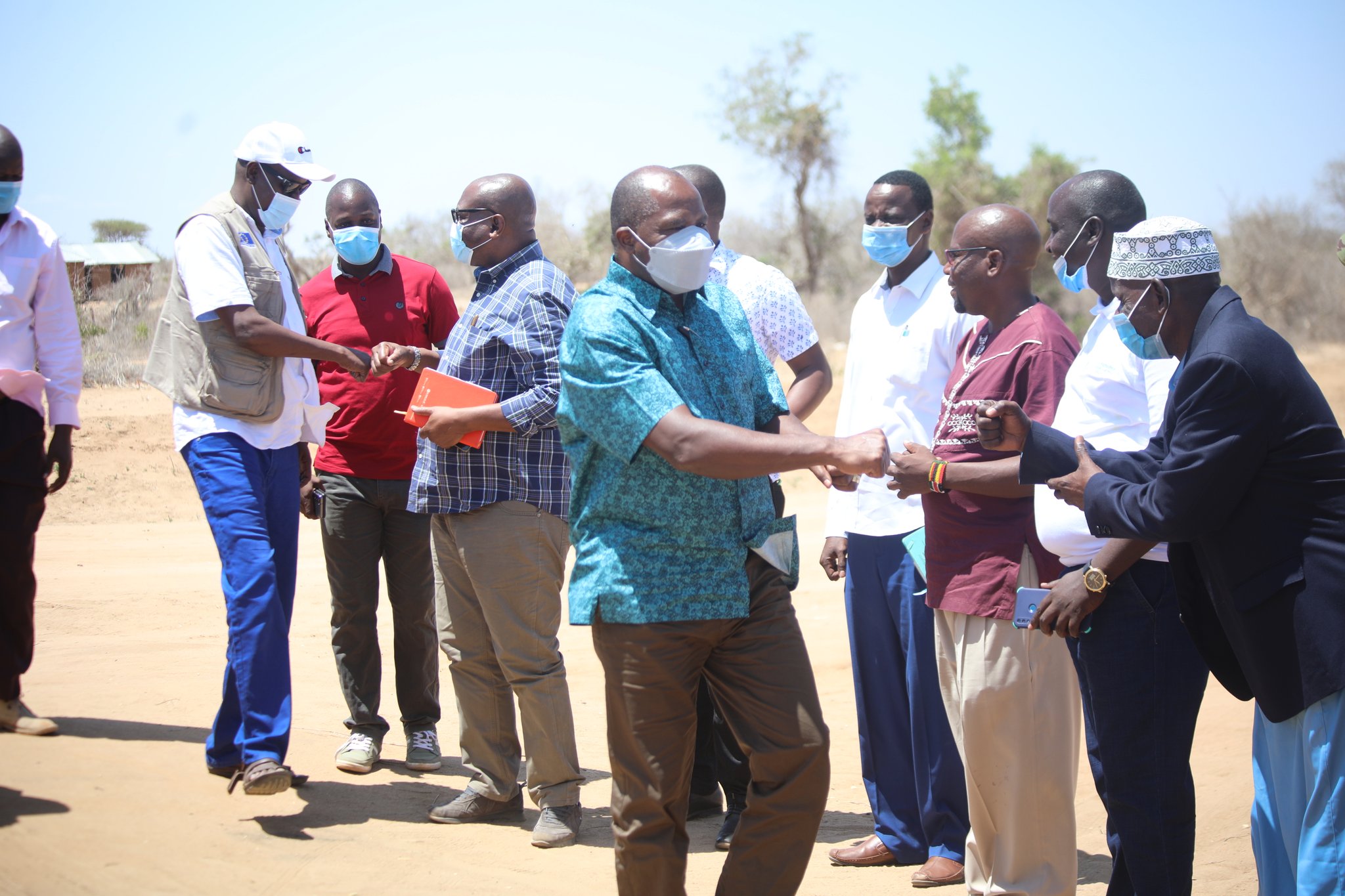The State Department for Agriculture has handed over project sites and contractors of phase two of the Small Irrigation and Value Addition Project (SIVAP) to Tana River County.
The project worth Ksh 300M will involve the construction of three water pans in Mkomani, Nkozi and Mpongwe villages. Drilling and equipping of eight boreholes, fencing and reseeding of pasture grounds in Chifiri and Hakoka.
Through the project marketing/grading shades in Makere, Madogo livestock sale yard and 27 Kilometres of farm access roads will be constructed.
SIVAP aims at the reduction of poverty by enhancing agricultural productivity, income and food security in the eleven counties. Most of the counties are semi-arid and receive low to moderate rainfall.
The project will enhance irrigation infrastructures, water resource development and improved agricultural markets access through the construction of roads in the communities.
The project is implemented by the State Department for Crop Development and Agricultural research in 11 counties: Tana River, Makueni, Kajiado, Machakos, Bomet, Tharaka Nithi, Meru, Nyeri, Nyandarua and Kitui.
SIVAP Project Manager Engineer Omari Josphat said at the end of phase of the project the government will have injected close to half a billion in Tana River County.
He added that they are expecting the beneficiaries to increase food production as drought continues to ravage parts of Tana River.
SIVAP has been funded by a loan from Africa Development Bank (AfDB), a grant from the Global Agriculture and Food Security Programme (GAFSP) and the Government of Kenya.
The community thanked the government for the projects saying the ravaging drought and lack of floods has exacerbated their sufferings.
Ali Jaro, assistant chief of Bububu Sub location in Jamhuri Location said his community’s farming patterns were affected by erratic rainfalls.
Juma Hiribae, a farmer from Bububu said they used to rely on flood irrigation for their vegetable farming which have been hampered by dry spell affecting the flooding of Tana River.
He says the wells will boost their vegetable farming and help in shifting from unreliable rain fed irrigation.
By Fred Odanga Azelwa.
